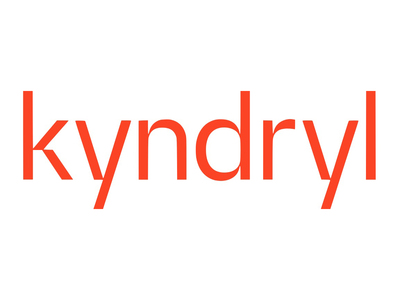Kyndryl Report: Why Most Businesses Are Not Yet Winning With AI
Rhea-AI Summary
Positive
- AI Pacesetters are 3x more likely to have fully implemented change management strategies
- AI Pacesetters are 67% more likely to have tools for employee skills inventory
- AI Pacesetters report 29% less concerns about AI affecting employee engagement
- 95% of businesses have already invested in AI, showing strong adoption
Negative
- 71% of workforces are not ready to leverage AI successfully
- 51% of organizations lack skilled talent for AI management
- 45% of CEOs report employee resistance or hostility to AI
- Only 40% of leaders use AI-powered insights for decision-making
- Just 20% of companies use AI for developing new products and services
News Market Reaction 1 Alert
On the day this news was published, KD gained 0.15%, reflecting a mild positive market reaction.
Data tracked by StockTitan Argus on the day of publication.
71% of business leaders say their workforces are not ready to successfully leverage AI- CEOs and CIOs/CTOs have different views on AI's workforce impact
- A small group –
14% of companies – is deploying AI for commercial use while future-proofing their workforces
Based on a survey of more than 1,000 senior business and technology executives across 25 industries and eight geographies, Kyndryl's first People Readiness Report reveals a striking gap between AI investment and workforce preparedness:
95% of businesses have invested in AI71% of leaders say their workforces are not yet ready to successfully leverage the technology51% believe their organizations lack the skilled talent needed to manage AI45% of CEOs think most employees are resistant or even openly hostile to AI
Workforce readiness varies by industry. Businesses in Banking, Financial Services and Insurance report the highest levels of preparedness, while those in Healthcare report trailing behind.
"Only a small group of businesses have been able to harness AI successfully for business growth," said Michael Bradshaw, Global Practice Leader for Applications, Data and AI. "This report shows that while data architecture and technology infrastructure are key pieces of the puzzle, organizations that do not prioritize their workforces will miss out."
Despite widespread attempts at implementation, most organizations are not currently benefiting from game-changing use cases that will drive new products and services for their customers. Generative AI tools are the most popular use case reported by those surveyed, yet only 4 in 10 leaders report using AI-powered insights to enhance decision-making or unlock growth for their business. Just one-fifth of leaders say the primary use case of AI at their organization is to develop new products and services for customers.
Yet this research also reveals that a small subset of AI Pacesetters has leveraged AI for business growth while addressing workforce readiness. They are making strategic workforce decisions and seeing benefits across their employee population. Pacesetters are uniquely addressing 3 key barriers that are inhibiting AI adoption, and they are seeing benefits from their actions across:
- Organizational change management: AI Pacesetters are three times more likely than others to report a fully implemented change management strategy for AI in the workplace.
- Lack of employee trust in AI: AI Pacesetters are
29% less likely to cite fears around AI affecting employee engagement. - Skill gaps: AI Pacesetters are
67% more likely to agree that their organization has the tools and processes to accurately inventory the skills employees currently have. Four in 10 report no skills challenges at all.
"Preparing your workforce for the era of AI is easy to say, hard to do and an urgent imperative for business leaders," said Maryjo Charbonnier, Chief Human Resources Officer at Kyndryl. "At Kyndryl, we run an entire ecosystem of culture and systems that readies our people and our business for continuous change. It's about anticipating the business impacts of AI, understanding and integrating your skill data with your customer demand and having a multi-pronged approach for equipping employees to build the skills they need and learn to effectively use generative AI tools in their work."
Compared to CIOs and CTOs, CEOs are far more likely to say their organization is still in its early stages of AI, and two and a half times more likely to say their infrastructure is inadequate to support it. This difference also extends to how they choose to solve AI-related workforce challenges and the individual skills they believe their organization needs to be successful. CEOs are far more likely to turn to outside talent rather than upskilling their own employees.
"The encouraging news is that businesses that can get alignment at the top are not only marching in the same direction, but are seeing benefits," said Kim Basile, Chief Information Officer at Kyndryl. "This work isn't easy, but aligning technology strategies with broader business goals is the top action leaders need to take to fully benefit from AI."
To read the full report, visit Kyndryl's People Readiness Report.
About Kyndryl
Kyndryl (NYSE: KD) is a leading provider of mission-critical enterprise technology services offering advisory, implementation and managed service capabilities to thousands of customers in more than 60 countries. As the world's largest IT infrastructure services provider, the Company designs, builds, manages and modernizes the complex information systems that the world depends on every day. For more information, visit www.kyndryl.com.
Kyndryl press contact
press@kyndryl.com
![]() View original content to download multimedia:https://www.prnewswire.com/news-releases/kyndryl-report-why-most-businesses-are-not-yet-winning-with-ai-302467771.html
View original content to download multimedia:https://www.prnewswire.com/news-releases/kyndryl-report-why-most-businesses-are-not-yet-winning-with-ai-302467771.html
SOURCE Kyndryl









